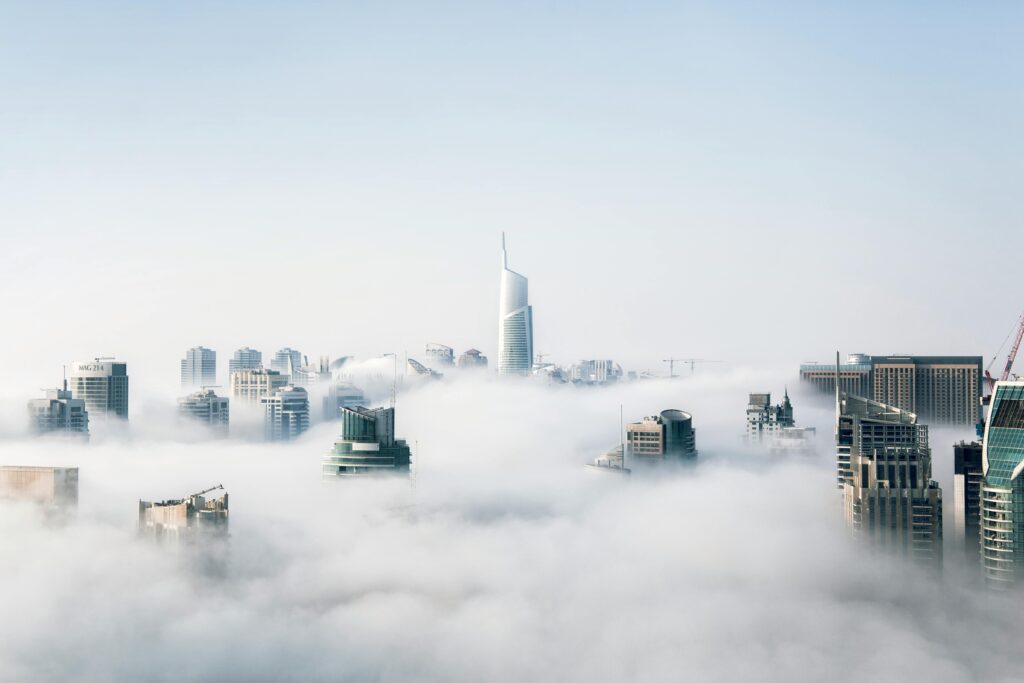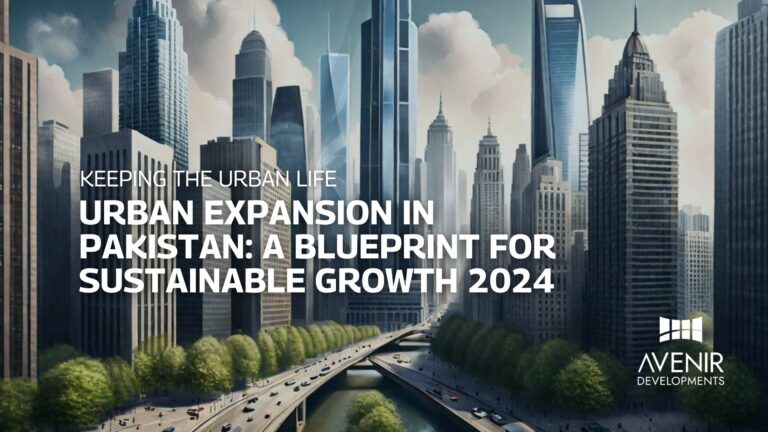Urban expansion is reshaping the landscape of Pakistan, offering both opportunities and challenges. As our cities grow at an unprecedented pace, it’s imperative to navigate this transformation with a focus on sustainability and inclusivity. In this comprehensive guide, we’ll delve into the intricacies of urban expansion in Pakistan, exploring its drivers, impacts, and potential solutions. By understanding the challenges and harnessing the opportunities, we can create thriving, resilient, and equitable cities for generations to come.
Understanding Urban Expansion in Pakistan
Urban expansion in Pakistan is a complex phenomenon driven by a combination of factors, including rapid population growth, economic development, and rural-urban migration. This section will provide a foundational understanding of the concept, its historical context in Pakistan, and its significance in shaping the country’s urban landscape.
We will explore:
- Definition and scope of urban expansion
- Historical overview of urbanization in Pakistan
- Key drivers of urban expansion
- The impact of urban expansion on Pakistan’s economy and society
By examining these aspects, we’ll establish a solid framework for the subsequent sections of this article.

Urban Expansion: A Pakistani Perspective
Urban expansion in Pakistan is a complex phenomenon that is rapidly reshaping the country’s landscape. The relentless influx of people from rural areas to urban centers, coupled with natural population growth, has led to a surge in urban development. While this expansion offers opportunities for economic growth and development, it also presents significant challenges in terms of infrastructure, housing, and environmental sustainability.
Pakistan’s urbanization journey began in earnest during the mid-20th century, with Karachi emerging as the country’s primary economic hub. Since then, other cities like Lahore, Islamabad, and Faisalabad have experienced rapid growth, transforming the nation’s urban fabric. This expansion has been fueled by factors such as industrialization, improved agricultural productivity, and the search for better economic opportunities.
However, the pace of urbanization has outstripped the capacity of many cities to cope. The result is a complex interplay of opportunities and challenges. On the one hand, urban expansion has contributed to economic growth, job creation, and access to education and healthcare. On the other hand, it has exacerbated issues such as traffic congestion, air pollution, water scarcity, and the development of informal settlements.
To address these challenges and harness the opportunities presented by urban expansion, it is essential to understand the underlying drivers of this phenomenon. These include:
- Population growth: Pakistan’s high population growth rate is a primary driver of urbanization.
- Rural-urban migration: The search for better economic opportunities is pushing people from rural areas to cities.
- Economic development: Industrialization and economic growth create jobs and attract people to urban centers.
- Government policies: Urban development policies and incentives can either accelerate or slow down urban expansion.
In the following sections, we will delve deeper into the implications of urban expansion in Pakistan, examining its impact on various sectors and exploring potential solutions.
The Challenges of Urban Expansion in Pakistan
While urban expansion offers immense potential for economic growth and development, it also presents a myriad of challenges that must be addressed to ensure sustainable and equitable urban futures. Pakistan’s rapid urbanization has exacerbated existing problems and created new ones, demanding innovative and comprehensive solutions.
Infrastructure Deficiencies
One of the most pressing challenges is the strain on urban infrastructure. The rapid influx of people has led to overburdened transportation systems, inadequate water supply, and insufficient waste management facilities. This has resulted in traffic congestion, water shortages, and environmental pollution, significantly impacting the quality of life for urban residents.
Housing Shortage and Affordability
The growing population has outpaced housing development, leading to a severe shortage of affordable housing. This has driven up property prices, making it increasingly difficult for low-income households to find suitable accommodation. The proliferation of informal settlements, often characterized by poor living conditions and lack of basic amenities, is a direct consequence of this housing crisis.
Environmental Degradation
Urban expansion has contributed to environmental degradation through increased pollution, deforestation, and the loss of green spaces. Air and water pollution have reached alarming levels in many Pakistani cities, posing serious health risks to residents. The indiscriminate disposal of waste has further exacerbated the problem.
Social Issues
Rapid urbanization has also led to a host of social challenges, including poverty, crime, and inequality. The influx of migrants has strained social services, leading to overcrowding in schools and hospitals. Moreover, the rapid pace of change has disrupted social fabric and community cohesion.
Governance and Planning Challenges
Effective urban governance and planning are crucial for addressing the challenges of urban expansion. However, weak institutional capacity, corruption, and lack of coordination among different government agencies have hindered efforts to develop sustainable urban futures.
In the next section, we will explore potential solutions and strategies to address these challenges and create more resilient and equitable cities in Pakistan.
Towards Sustainable Urban Expansion in Pakistan
Addressing the challenges posed by rapid urbanization requires a multifaceted approach that involves government, private sector, and civil society collaboration. This section will explore potential strategies and solutions to foster sustainable urban expansion in Pakistan.
Integrated Urban Planning and Development
Effective urban planning is essential for managing growth and creating livable cities. This involves developing comprehensive plans that address land use, transportation, housing, infrastructure, and environmental considerations. It is crucial to adopt a holistic approach that integrates various sectors and stakeholders to ensure the long-term sustainability of urban development.
Investing in Public Transportation
Shifting the focus from private to public transportation is vital for reducing traffic congestion, improving air quality, and enhancing accessibility. Investing in efficient and affordable public transportation systems, such as metro rail, bus rapid transit (BRT), and light rail transit (LRT), can significantly improve urban mobility.
Affordable Housing Solutions
Addressing the housing shortage and affordability crisis requires innovative approaches. Government policies should promote affordable housing development through incentives, subsidies, and land allocation. Public-private partnerships can also play a crucial role in financing and implementing affordable housing projects.
Environmental Sustainability
Integrating environmental considerations into urban planning is essential for creating sustainable cities. This includes promoting green buildings, renewable energy sources, waste management, and urban green spaces. Investing in clean technologies and adopting sustainable practices can help mitigate the environmental impacts of urban expansion.
Inclusive Urban Development
Ensuring that the benefits of urbanization are shared by all is crucial for creating equitable cities. This involves addressing issues of poverty, inequality, and social exclusion. Investing in education, healthcare, and social services in urban areas is essential for improving the quality of life for all residents.
Good Governance and Capacity Building
Strengthening urban governance and building the capacity of local governments are critical for effective urban management. Decentralization of power and financial resources can empower cities to address their specific challenges. Investing in training and capacity building for urban planners, engineers, and policymakers is essential for improving urban management practices.
In the following sections, we will delve deeper into specific strategies and case studies to illustrate how these principles can be implemented in the Pakistani context.
Expert Tips for Sustainable Urban Expansion in Pakistan
Based on my extensive experience in architecture, design, and urban development, I offer the following expert tips for fostering sustainable urban expansion in Pakistan:
Prioritize Mixed-Use Development
Creating mixed-use developments that combine residential, commercial, and recreational spaces within a single development can significantly enhance urban living. By reducing the need for long commutes, these developments contribute to reduced traffic congestion, lower carbon emissions, and a more vibrant community life.
Invest in Green Infrastructure
Green infrastructure, such as parks, green roofs, and urban forests, plays a crucial role in mitigating the impacts of urban expansion. These green spaces improve air quality, reduce stormwater runoff, and provide essential ecosystem services. Investing in green infrastructure can also enhance the aesthetic appeal and livability of cities.
Foster Public-Private Partnerships
Collaboration between the government and private sector is essential for successful urban development. Public-private partnerships can leverage the strengths of both sectors to deliver innovative and sustainable solutions. By sharing risks and rewards, these partnerships can accelerate project implementation and improve service delivery.
Empower Local Communities
Engaging local communities in the urban planning process is crucial for ensuring that development aligns with the needs and aspirations of residents. By involving community members in decision-making, we can foster a sense of ownership and create more equitable and inclusive cities.
Embrace Technology
Technology can be a powerful tool for addressing urban challenges. Smart city initiatives, including digital platforms for urban planning, transportation, and waste management, can optimize resource utilization and improve service delivery.
Invest in Human Capital
Building the capacity of urban planners, engineers, and policymakers is essential for achieving sustainable urban development. Investing in education and training programs can equip professionals with the skills needed to address the complexities of urban expansion.
By implementing these strategies, Pakistan can embark on a path towards sustainable urban development, creating vibrant, resilient, and equitable cities for future generations.
A Blueprint for Pakistan’s Urban Future
Urban expansion in Pakistan presents both significant challenges and opportunities. By adopting a strategic and holistic approach, we can transform these challenges into catalysts for sustainable growth and development.
This article has explored the complexities of urban expansion in Pakistan, identifying key drivers, impacts, and potential solutions. It is evident that addressing these issues requires a concerted effort from government, private sector, and civil society.
By prioritizing integrated urban planning, investing in public transportation, addressing the housing crisis, promoting environmental sustainability, and fostering inclusive development, Pakistan can create vibrant, resilient, and equitable cities.
It is essential to recognize that sustainable urban development is a continuous process that requires ongoing monitoring, evaluation, and adaptation. By embracing innovation, collaboration, and a long-term vision, Pakistan can build a prosperous urban future for generations to come.
Are you ready to embark on a journey towards sustainable urban development? Avenir Developments offers a comprehensive range of services including architecture, interior design, and construction to help you create thriving and sustainable urban spaces. Contact us today to discuss your project and explore how we can contribute to a better future for Pakistan’s cities.
Less is more. Avenir Developments creates clean, sophisticated spaces that are both functional and beautiful. Call +923001101103 or WhatsApp us to experience the difference.
By working together, we can shape a Pakistan where cities are not just places to live, but thriving ecosystems that enhance the quality of life for all.







